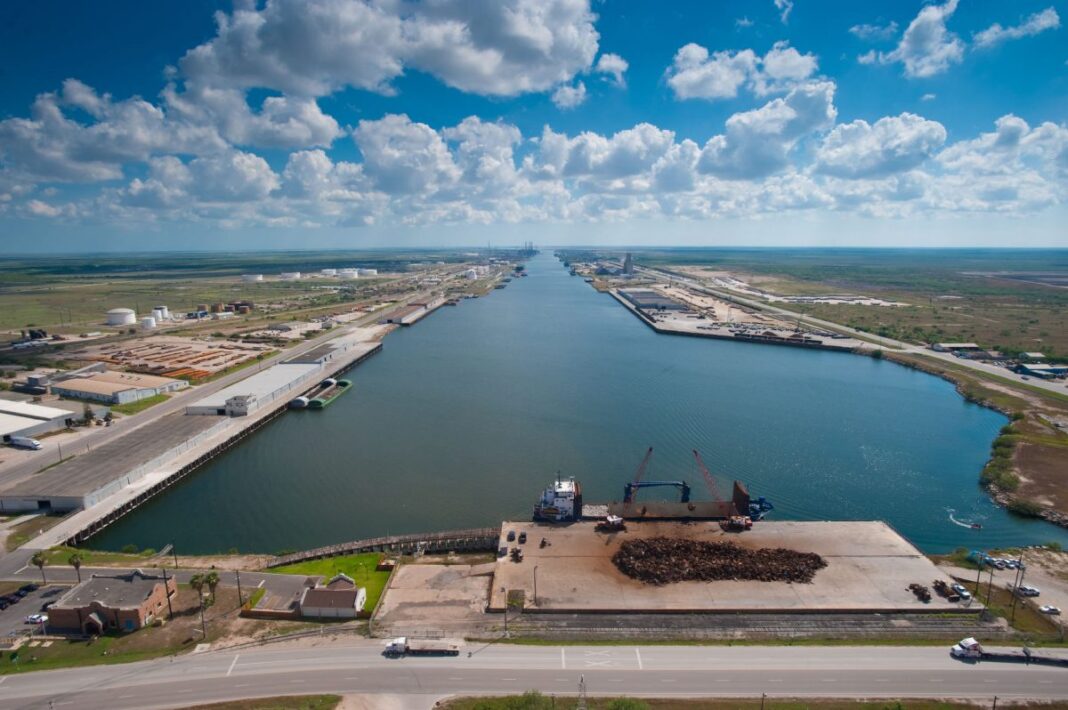A federal appeals court has ruled in favor of environmental and community groups that last year appealed a November 2019 decision by the Federal Energy Regulatory Commission approving construction and operation of liquefied natural gas export terminals and related pipelines at the Port of Brownsville.
On Aug. 3 the U.S. Circuit Court of Appeals for the D.C. Circuit ruled that FERC’s analyses of the Rio Grande LNG and Texas LNG projects’ impact in terms of environmental justice and climate change were deficient under the National Environmental Policy Act and Administrative Procedures Act, and that FERC did not go far enough in justifying its finding that the projects are in the public interest under the Natural Gas Act.
The three-judge panel ordered FERC to reconduct the analysis of the projects’ effect on climate change and low-income or minority communities, but left intact the agency’s original order permitting the LNG projects, which at the time also included Annova LNG, whose parent company, Exelon, abandoned the project in March citing “changes in the global LNG market.”
FERC Chairman Richard Glick, who voted against authorizing the projects, said in a statement that the court’s decision “clearly demonstrates that (FERC) has the authority and obligation to meaningfully analyze and consider the impacts from (greenhouse gas) emissions and impacts to environmental justice communities.”
“As I said in my dissents when FERC approved these projects nearly two years ago, neither the Natural Gas Act nor the National Environmental Policy Act permit FERC to assume away the impacts of building and operating any natural gas facilities,” he said.
Failing to do so puts FERC’s decisions, and the commercial investments that rely on them, in “legal peril,” Glick said.
When FERC approved the projects in 2019, Glick argued in his dissent that “the upshot of the commission’s approach is to signal to developers that they can sidestep environmental justice concerns so long as they ensure that all, or substantially all, of a project’s adverse impacts fall on low-income or minority communities.”
He argued that the court’s decision reaffirms the urgency behind his push for FERC to “adequately consider the effects of its decisions” when it comes to climate change and environmental justice.
The legal challenge against the agency was filed by the Sierra Club, the city of Port Isabel and Vecines para el Bienestar de la Comunidad Costera, a group of Laguna Heights residents, who argue that the LNG terminals would threaten the local tourism and fishing industries and put low-income Hispanic residents who live nearby at disproportionate risk of health problems due to air pollution.
Rebeka Hinojosa, speaking for the Sierra Club, said the proposed LNG facilities “would devastate our local economy, subject our families to dangerous pollution and worsen the climate crisis.
“We will continue to fight to ensure that Rio Grande LNG and Texas LNG are never built,” she said.
Jennifer Richards, attorney with Texas RioGrande Legal Aid, which represents the Laguna Heights group, said in a statement that the ruling “sends a strong message to regulators that they must consider the social and environmental costs of such developments.”
“Before (FERC) can say these projects are in the public interest it needs to evaluate their environmental justice impacts on communities like Laguna Heights, where residents lack adequate access to health care and rely on local fishing and tourism economies for their livelihood,” she said. “The court’s decision … will hopefully prompt FERC to do just that.”
NextDecade CEO Matt Schatzman said in a statement that the court, because it did not vacate FERC’s order authorizing the plants, “affirmed the validity of the FERC authorization of our Rio Grande LNG project and we look forward to the FERC’s response to the court’s requests.”
“Efforts to reduce global greenhouse gas emissions are at the very foundation of our company and we have already announced actions to reduce emissions at Rio Grande LNG by more than 90 percent through use of carbon capture and storage,” he said.
Langtry Meyer, chief operating officer for Texas LNG, wrote in an email that the court’s ruling does not impact the company’s ability to continue commercial development of its project.
“In the Court’s conclusion … the DC Circuit unanimously finds that it is not necessary to stop the project from moving forward by vacating FERC’s order because doing so would ‘needlessly disrupt completion of the projects,’” he wrote. Meyer noted that the court ruling is limited to requiring FERC to perform additional analysis on climate change and environmental justice, and to use the results to inform its public-interest review.
“In addition, the Court writes that it believes that FERC ‘is likely to remedy any deficiencies in its orders on remand,’” he said. “The DC Circuit’s opinion is a reminder that environmental justice, energy transition, and climate change are some of our most important generational issues,” Meyer wrote.
“Texas LNG has taken tremendous actions to ensure the project is a market leader on these issues. We look forward to assisting FERC to complete the necessary analysis while we continue to bring the project to a final investment decision.”




